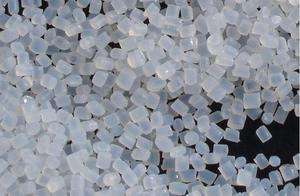Caprolactam

| Physical and chemical properties | Color and smell state: white powder (flaky) or crystal, with oily hand, mint and acetone smell | ||
| Flammability: The powder and air can form an explosive mixture when it reaches a certain concentration, it will explode when it encounters sparks | |||
| Corrosivity: No corrosion | Volatility: non-volatile | ||
| Density: 1.01 | Boiling point: 270°C | ||
| Melting point: 68-71 °C | Hygroscopicity: Does not absorb moisture | ||
| Deliquescence: not deliquescence | Flash point: 152 °C | ||
| Solubility: soluble in water, chlorinated solvents, petroleum hydrocarbons, cyclohexene, benzene, methanol, ethanol, and ether. | |||
| Various numbers | CAS:105-60-2 | HS: 2933710000 | EINECS: 203-313-2 |
| Uses | The vast majority of caprolactam is used in the production of polycaprolactam. About 90% of the latter is used in the production of synthetic fibers, namely caplon, and 10% is used as plastics for the manufacture of gears, bearings, pipes, medical equipment, electrical and insulating materials. It is also used in coatings, plastics and a small amount of synthetic lysine. It is mainly used for preparing caprolactam resin, fiber and artificial leather, etc., and also used as raw material for medicine. | ||
| Hazard category | Class 6.1 poisons | ||
| Fire-fighting measures | Extinguishing agent: water, carbon dioxide, foam, dry powder. | ||
| Emergency treatment | Skin contact: Take off contaminated clothing and rinse the skin thoroughly with soap and water. Eye contact: Lift the eyelid immediately and rinse thoroughly with plenty of running water or saline for at least 15 minutes. Seek medical attention. Inhalation: quickly leave the scene to a place with fresh air. | ||
| Packaging, storage, transportation | Generally, double-layer packaging bags are used. The inner bag is a polyethylene film bag and heat-sealed; the outer bag is a three-in-one composite bag such as kraft paper and polyethylene, 25 kg/bag. Store in a cool, ventilated warehouse. Keep away from fire and heat sources. It should be stored separately from oxidants, alkalis, and edible chemicals, and avoid mixed storage. Equipped with the appropriate variety and quantity of fire equipment. The storage area should be equipped with suitable materials to contain the leakage; mixing with oxidants, alkalis, and edible chemicals is strictly prohibited. | ||
Next product: Benzyl chloride

